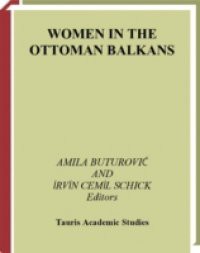Women in the Ottoman Balkans were founders of pious endowments, organizers of labour and conspicuous consumers of western luxury goods; they were lovers, wives, castaways, divorcees, widows, the subjects of ballads and the narrators of folk tales, victims of communal oppression and protectors of their communities against supernatural forces. In their daily lives they experienced oppression and self-denial in the face of frequently unsympathetic local customs, but also empowerment, self-affirmation, and acculturation. This volume not only deepens our understanding of the distinctive contributions that women have made to Balkan history but also re-evaluates this through a more inclusive and interdisciplinary analysis in which gender takes its place alongside other categories such as class, culture, religion, ethnicity and nationhood._x000D__x000D_This original and stimulating examination of the lives of Muslim, Christian and Jewish women in southeastern Europe during the centuries of Ottoman rule focuses especially on those social relations that crossed ethnic and confessional intercommunal boundaries.

